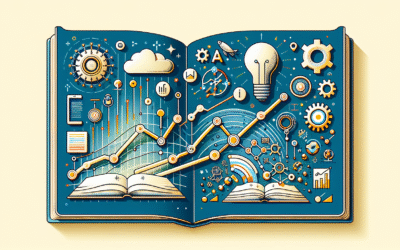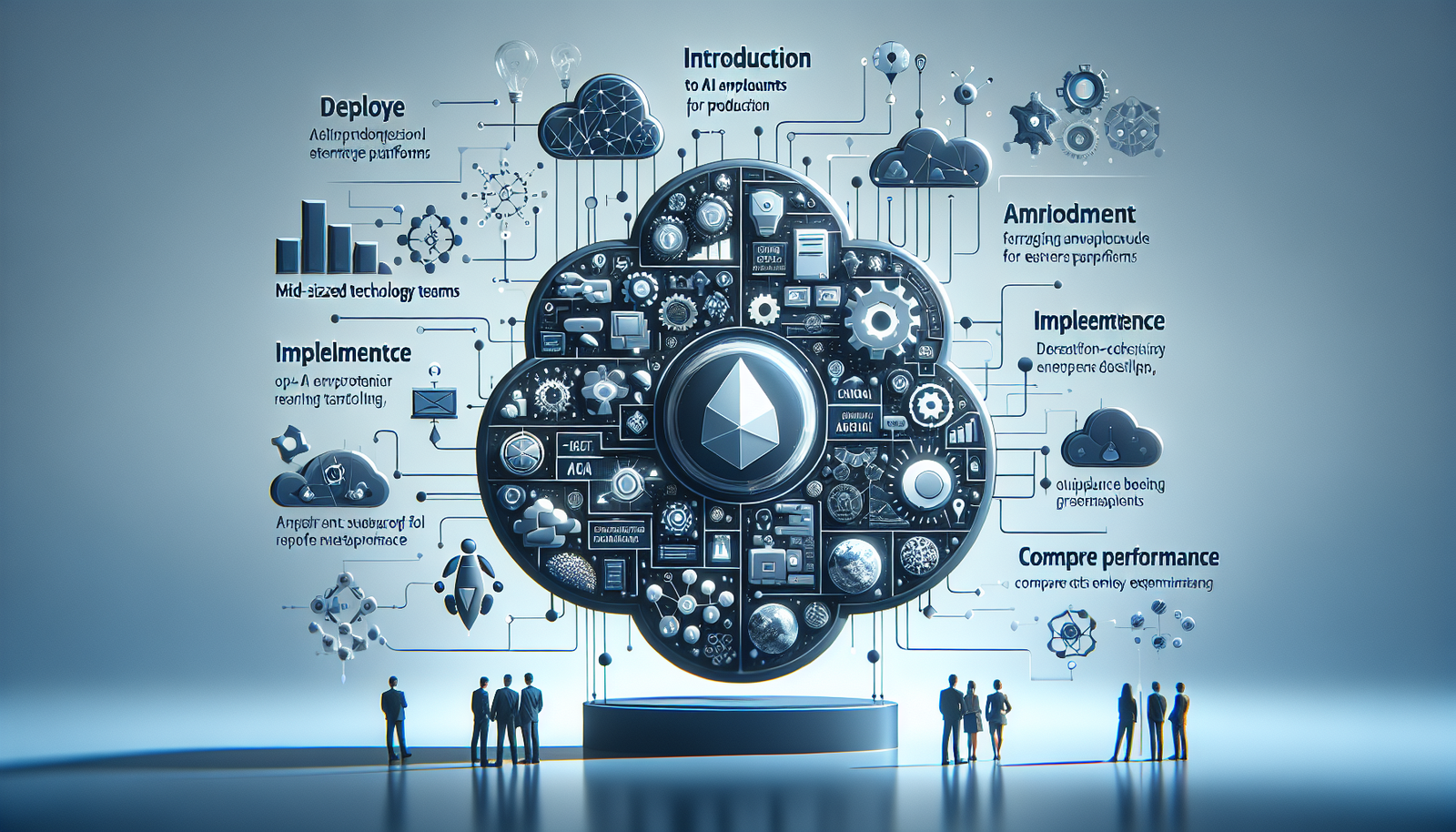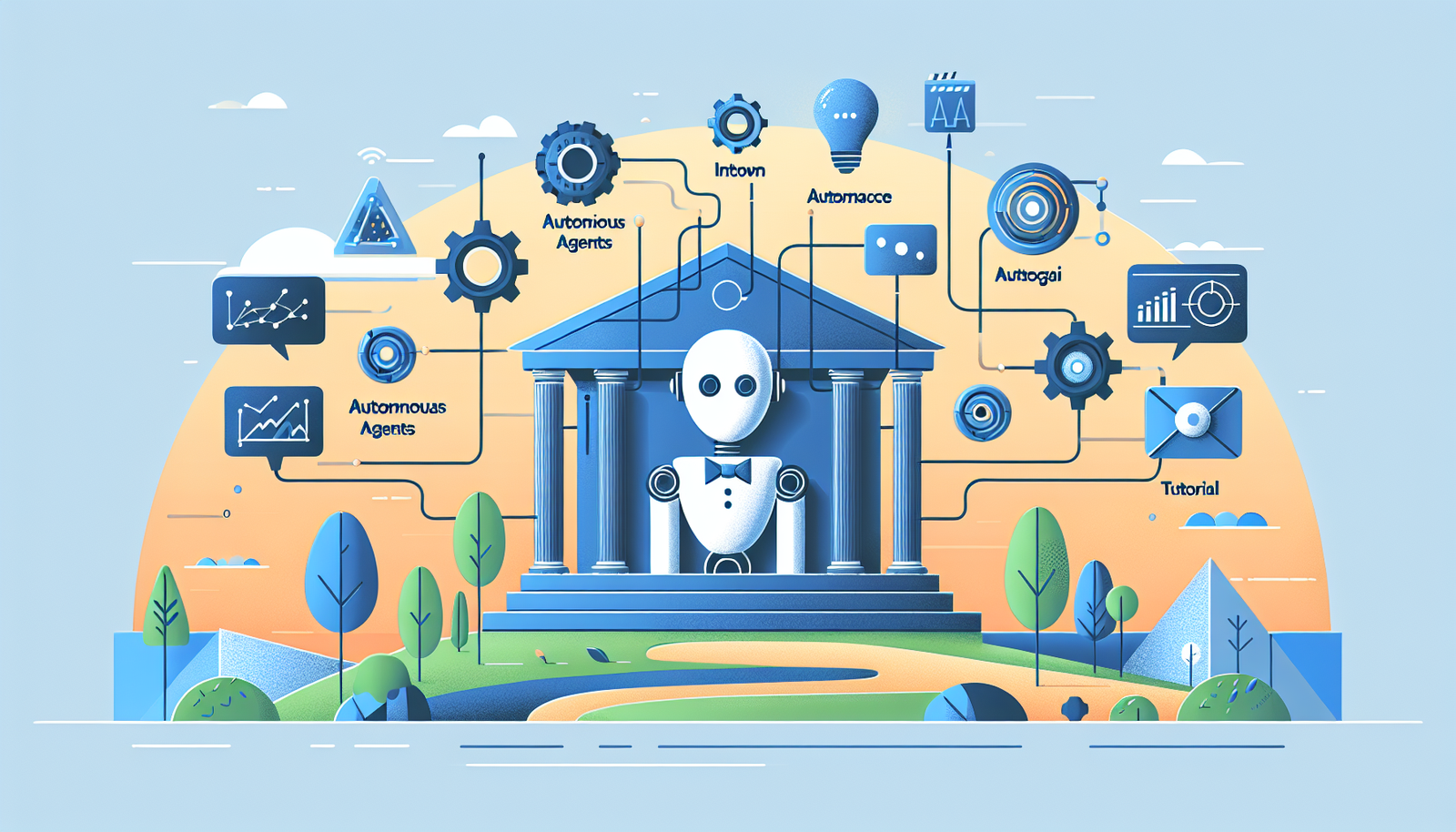Introduction: Evaluating AI Agent Framework ROI
Businesses exploring intelligent automation are increasingly turning to AI agent frameworks to orchestrate complex, multi-step tasks. Deciding between LangChain vs CrewAI vs Autogen can directly impact deployment speed, cost efficiency, and ROI. In this article, we compare these top frameworks for decision-makers looking to maximize returns and operational value.
Why AI agent orchestration matters
AI agents are intelligent modules that interact with users, systems, or other agents to complete tasks autonomously. Frameworks like LangChain, CrewAI, and Autogen enable developers and businesses to deploy, coordinate, and scale such agents effectively. The goal is not just functional deployment—but measurable return.
The frameworks we’ll compare
- LangChain: Modular, integration-rich, and enterprise-ready
- CrewAI: Fast, YAML-based, optimized for rapid prototyping
- Autogen: Microsoft’s scalable, communication-driven platform
LangChain: Feature-Rich but Developer-Centric
Overview and architecture
LangChain is a Python-based framework designed to connect LLMs with external tools, agents, and memory. It supports advanced prompt chaining, agent control, retrieval-augmented generation (RAG), and numerous plugin integrations. Its open-source architecture provides maximum flexibility.
Strengths and limitations
Pros:
- Huge ecosystem support including OpenAI, Pinecone, and Hugging Face
- Scalable and modular for advanced enterprise implementations
- Strong community and documentation
Cons:
- Steeper learning curve for non-technical teams
- Requires more engineering time to deploy optimally
Typical use cases and ROI profile
LangChain’s ROI scales over time as components mature into reusable modules. Best suited for enterprises building complex agents with specific workflows, where time invested into architecture pays off in functional extensibility.
CrewAI: Intuitive Multi-Agent Collaboration
What makes CrewAI unique?
CrewAI emphasizes rapid agent creation and delegation using simple YAML or Python configuration. Agents are given roles like “Researcher,” “Planner,” or “Coder” and work together on a task chain. Ideal for cross-functional LLM pipelines.
Pros for prototyping and speed to value
Advantages:
- Quick ramp-up time using YAML
- Human-readable workflows make debugging easier
- Lower entry threshold for small teams
ROI analysis in agile contexts
CrewAI delivers high short-term ROI for startups and product teams needing to generate MVPs or internal tools. However, some limitations exist regarding scalability and advanced state-handling in longer workflows.
Autogen by Microsoft: Enterprise-Grade Autonomy
Under the hood: SDK and architecture
Autogen is designed for complex agent collaboration and autonomous loops. Developed by Microsoft, it enables structured agent-to-agent dialogues with minimal human prompt engineering. It’s especially helpful for systems requiring persistent inter-agent negotiation or self-improvement.
Advantages for scaling agent communication
- Built-in cost control via Azure integrations
- Optimized for intelligent checking, feedback loops
- Reliable SDK for long-term enterprise integration
ROI for enterprise-grade operations
Autogen reduces long-term cognitive and operational costs by enabling resilient multi-agent systems. Enterprises benefit from fewer failure points and less need for constant oversight.
AI Agent Framework Comparison Table
| Feature | LangChain | CrewAI | Autogen |
|---|---|---|---|
| Ease of Use | Moderate | High | Moderate |
| Best For | Enterprise customization | Rapid prototyping | Scalable agent communication |
| Integration Readiness | Extensive | Medium | High (Azure-centric) |
| ROI Profile | Long-term modular ROI | Immediate MVP delivery | Operational cost reduction |
Conclusion: Choosing the Right Agent Framework
Decision criteria roundup
- Need rapid prototyping? Choose CrewAI.
- Want long-term agent customization and complex task orchestration? Go with LangChain.
- Need enterprise-grade agent scaling with autonomy? Opt for Autogen.
Recommendations by use case type
If your organization is experimenting or iterating fast, CrewAI will maximize sprint-based ROI. For production-level workflows requiring deep integrations or long-lived agents, LangChain and Autogen yield superior results.
FAQs: AI Agent Frameworks and ROI
Which AI framework has the fastest learning curve?
CrewAI offers the fastest learning curve due to its YAML-based configuration and lower development overhead.
Can LangChain be used with other frameworks?
Yes. LangChain’s modularity allows developers to integrate it with CrewAI or embed Autogen-style agents into its chain logic.
Is Autogen production-ready for large-scale tasks?
Yes. Autogen is currently being used in enterprise trials and supports scalable, autonomous multi-agent deployments with persistent communication loops.
Focus Keyword: AI agent framework ROI comparison






